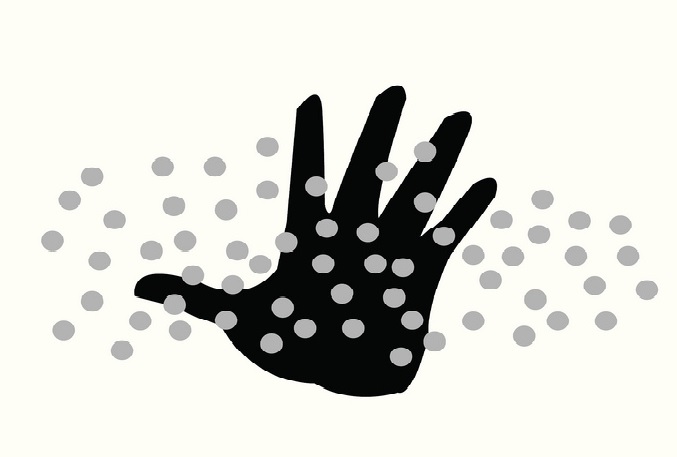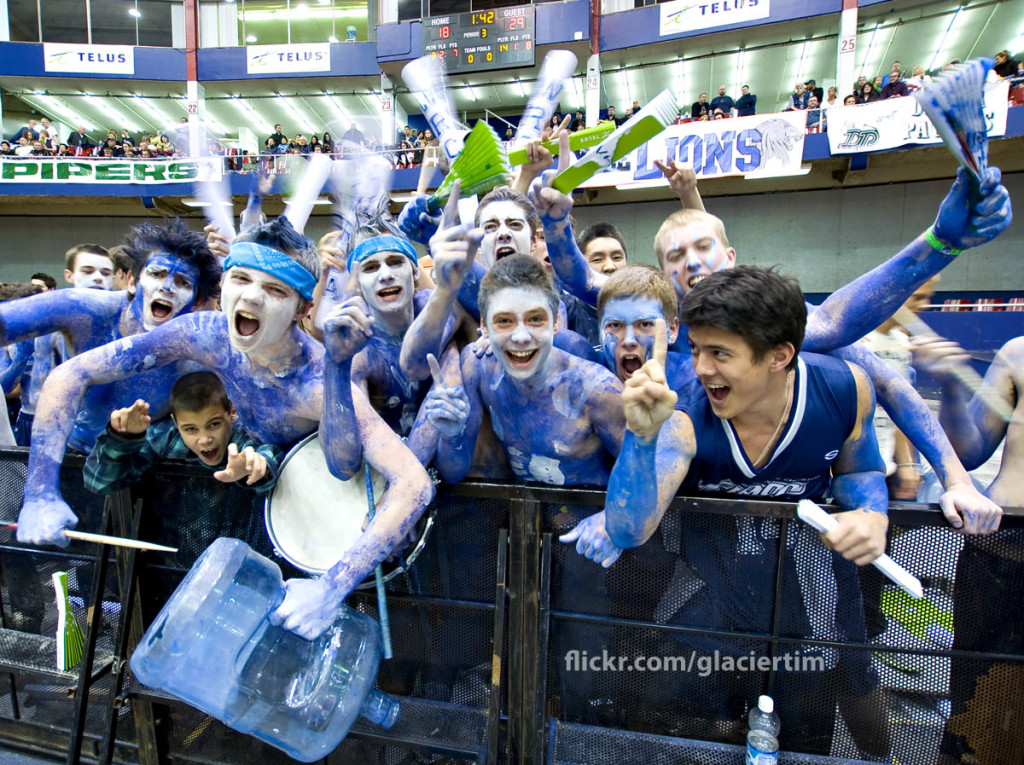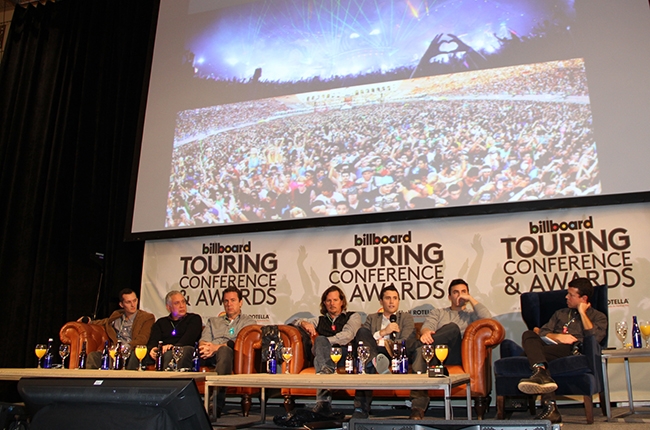Successful Leaders are Highly Authentic
There’s a maxim written in stone at Delphi that has guided humans for hundreds of years, and it’s “Know Thyself.” This maxim is key for leaders looking to implement change in an organization.
According to Dr. Johan Coetsee—a senior lecturer in organization and human resource management at Northumbria University, Newcastle—leaders are only successful if they have a deep understanding of themselves and their impact on others.
Coetsee interviewed 27 CEOs of multinational companies and public sector organizations in the U.K. and Ireland to determine how they managed change successfully. He discovered that authenticity and attitude—more so than a change management model—factored predominately in winning over employees in transitioning an organization.
“Many managers are very good in terms of the technical aspects of change. They are able to identify the change to structure or implementation but they forget the softer side of change management—the employees,” he said. “If a leader wants to create alignment between their vision and their people, they need to ask themselves how they feel about change on a personal level. Successful CEOs place a high emphasis on being authentic, being themselves. People need to be able to trust you. If you’re not a charismatic leader, there is no point faking it as you will lack authenticity, instead you need to understand who you are and what your values are. Your attitude to change will influence how the change occurs and whether it will be successful.”
Of course, change is constant.
“Managing change initiatives successfully can be the difference between organisations and teams that thrive and those that come apart at the seams,” he said. “Winning hearts and minds is key, as being good at managing a project isn’t the same as being a good manager of change. You need to create a sense of readiness for change.”
Gives you something to thing about, eh?
(photo credit: QuotesEverlasting via photopin cc)
How the Internet of Things Could Affect Your Job
We creep closer and closer everyday to a time when the Internet of Things will play a predominate role in our lives. The Internet of Things—or IoT for short—is defined in a variety of ways, but the best one comes from SAP: “A world where physical objects are seamlessly integrated into the information network, and where the physical objects can become active participants in business processes. Services are available to interact with these ‘smart objects’ over the Internet, query and change their state and any information associated with them, taking into account security and privacy issues.”
In other words, it’s technology trying to make your life and job easier. Considering the job aspect, Wired recently published an interesting article addressing how IoT will change the way we work in the future. I thought I’d share a few that sound intriguing. The following quoted text comes from Puneet Pandit, founder and CEO of Glassbeam, who wrote the article for Wired.
New Jobs
“The digital age has ushered in new IT jobs that go beyond the desk and beyond the code monkey. With the rise of IoT, cloud and ‘big data’ jobs are becoming more specialized than ever. Gartner last year reported that the number of Chief Digital Officers (CDOs) is on the rise, predicting that by 2015, 25 percent of companies will have one managing their digital goals. The Data Scientist too has become an important asset for companies embracing the value of big data and analytics, and we’ll begin to see more chief data scientists, analysts and even, chief customer satisfaction officers. And probably some titles we can’t even imagine yet.”
Structuring Data
“‘Big Data’ isn’t just big…it’s huge. If leveraged well, Big Data can create new value across the business when unstructured data is converted into structured data. Analyzing data and breaking it down into meaningful intelligence and analytics can tell a richer story about customers, product behavior, market position, employee productivity and even predicted future success.”
Location Tracking
“IoT will make location tracking simpler. Currently done via phones, cars and even in hospitals, Internet-connected equipment and devices will be geographically tagged, saving valuable resources like time and money. Companies will be able to track every aspect of their business, from inventory to fulfilling orders as quickly as possible to locating and deploying field services and staff.”
Work Productivity
The rise of social has given way to a new age of communications and team collaboration. Value tools like Box, Skype and even Facebook have captured the attention of the next generation workforce. Video collaboration and imaging will take hold as millennials and digital natives rely on text messaging, FaceTime and even ‘Hangouts’ for true integrative communication at work, saving time and blurring social tools with modern collaborative work systems.”
Please check out the article for the full list, and let us know in the comments how you see IoT changing the way you work in the future.
(photo credit: Profound Whatever via photopin cc)
Die-hard Fans Won’t Purchase Products Tied to Rival Teams
I’m a die-hard Dallas Cowboys fan (and a Texas Rangers fan and a Dallas Stars fan…well, kind of a Stars fan, anyway…). I pay attention when I see a product associated with the Cowboys. But not the Redskins or the Eagles or the Giants. My die-hard roots are deep and sturdy and aren’t easily swayed.
That’s true for most die-hard fans, according to a new study from Oregon State University (OSU) and California State University, San Marcos. Researchers asked a mix of average sports fans and die-hard fans to view generic ads, which were associated with either the home or rival teams and included strong or weak messages about product quality.
“We found that less identified [average] fans responded positively to strong, credible arguments,” said lead author Colleen Bee, an assistant professor of marketing in OSU’s College of Business. “What we found interesting is that this effect went away for [die-hard] fans when the ad featured a rival affiliation. Whether an argument was weak or strong did not make a difference—all that mattered was the association with the rival team.”
This is the first study, Bee said, to consider the combined effects of fan identification, sponsorship affiliation, and message characteristics.
Sponsorships, Bee said, are profitable—in fact, they account for $39.17 billion in yearly revenue worldwide—so companies should be aware that their message and thus their product may be viewed negatively when associated with certain teams.
“When you associate your product or brand with a team logo, you need to keep in mind that you will alienate the super fans of the rival team, and potentially lose customers,” she said. “On the other hand, you can also leverage that social identification to win over those sports fans who will view this sponsorship favorably simply because it is their team.”
(photo credit: GlacierTim via photopin cc)
Industry News Roundup
There was a lot of industry news this past week you may have missed. Here are some headlines that caught our eyes.
Ashley Capps, Charlie Jones and More Get Rained On, Pay $10 for Beer, Take Shots and Name ‘Douchiest Agents’ at Touring Panel
–Billboard
From mainstay festivals like Coachella and Bonnaroo to brand new niche festivals like the Mountain Oasis Electronic Music Summit, music fans have come to embrace festival experiences. Amid the increasing competition and with the same pool of artists to choose from, how do promoters continue to keep their festivals fresh? That was one of the biggest questions Ticketfly Founder & CEO Andrew Dreskin had for the panel of festival game-changers at the 10th annual Billboard Touring Conference.
Live Nation’s Earnings Reveal Concert Boom; Can It Continue?
–Forbes
According to Mogil, Live Nation and its subsidiaries drew 2.5 million concert-goers for EDM performances alone, thanks in part to 18 electronic festivals, nearly double last year’s total. Across all genres, the company launched 16 new festivals, bringing its total to 69 over the past year.
Which is More Important When Choosing a Facility: Price or Airport Proximity?
–MeetingsNet
Ten to 15 years from now, the majority of meeting decision-makers will be Gen X (age 33-46) and Gen Y (age 18-32). So conference centers and hotels need to learn more about what matters to this group—and fast. That was the thinking behind the International Association of Conference Centers study, “The Intergenerational Preferences of Meeting Planners,” which was presented at IACC’s annual meeting in March and will be expanded for 2014.
How The Most Brain Friendly Conference Makes Attendee Networking A Priority
–Midcourse Corrections
According to studies by ASAE, MPI and PCMA, people attend conferences for networking and learning (education.) If those are the top two products that our conferences are selling, doesn’t it make sense that we should focus on improving those two products?
The Reality of Google Glass
–The Meeting Professional
Early Glass adopters (Google calls them “Explorers”) find they have paid $1,500 for the privilege of explaining all of the things Glass doesn’t do. It’s not constantly recording video (it has a 10-second limit on videos). It’s not always on. It doesn’t do facial recognition (officially, at least). There’s no virtual reality overlay on the world. It is, as wearable-tech guru Amber Case calls it, “calm technology.”
(Image via A Turner Archives)
Creating Trust Through Food
You may want to take your clients out for dinner this Thanksgiving in the U.S. According to a recent study from Leiden University in Holland, trust is increased after eating food that contains tryptophan, which is found in fish, eggs, spinach, and turkey.
Researchers discovered that the amino acid stimulates the production of serotonin, which has a positive effect on mutual trust.
“Mutual trust is an important condition for co-operation,” said psychologist Lorenza Colzato. “Society functions in the first place on the basis of mutual trust. After that, such institutions as the courts and the police come into play.”
The researchers tested people by adding tryptophan to their orange juice and then having them play a trust game. Those who had taken tryptophan, compared to a placebo group, were more trusting during the game.
“These results support the idea that ‘we are what we eat’: the food one eats has a bearing on one’s state of mind,” Colzato said. “Food can thus act as a cognitive enhancer that modulates the way one thinks and perceives the physical and social world. In particular, the intake of tryptophan may promote interpersonal trust in inexpensive, efficient, and healthy ways.”
(photo credit: The Vault DFW via photopin cc)
Do you want to receive a Front Row News weekly digest?
Categories
- Allied (861)
- Architecture (147)
- Arenas (750)
- Career (897)
- Convention Centers (897)
- Education (623)
- Events (1,544)
- Food & Beverage (193)
- Foundation (113)
- Guest Experience (1,497)
- Industry News (2,270)
- Leadership (1,888)
- Marketing (150)
- Membership (2,001)
- Music (213)
- Performing Arts Centers (456)
- Professional Development (409)
- Research (128)
- Safety & Security (442)
- Sports (764)
- Stadiums (611)
- Student (159)
- Technology (516)
- Ticketing (92)
- Touring (82)
- Trends (365)
- Uncategorized (679)
- Universities (218)
- Video (25)
- Young Professional (198)
Twitter Feed
- Twitter feed loading
Recent Posts
- Serrano Assumes Deputy Director Position As Convention Center Expansion Progresses
- Seton Hawkins of Jazz at Lincoln Center to Deliver Keynote at VenueConnect 2025
- Where Are They Now – 30|UNDER|30 Class of 2023’s Trevor Thomas
- Time Is Running Out! Submit Your Comments on Ticketing Reform by July 7
- IAVM Announces the 2025-2026 Slate of Officers
Categories
- Allied
- Architecture
- Arenas
- Career
- Convention Centers
- Education
- Events
- Food & Beverage
- Foundation
- Guest Experience
- Industry News
- Leadership
- Marketing
- Membership
- Music
- Performing Arts Centers
- Professional Development
- Research
- Safety & Security
- Sports
- Stadiums
- Student
- Technology
- Ticketing
- Touring
- Trends
- Uncategorized
- Universities
- Video
- Young Professional
Archives
- July 2025
- June 2025
- May 2025
- April 2025
- March 2025
- February 2025
- January 2025
- December 2024
- November 2024
- October 2024
- September 2024
- August 2024
- July 2024
- June 2024
- May 2024
- April 2024
- March 2024
- February 2024
- January 2024
- December 2023
- November 2023
- October 2023
- September 2023
- August 2023
- July 2023
- June 2023
- May 2023
- April 2023
- March 2023
- February 2023
- January 2023
- December 2022
- November 2022
- October 2022
- September 2022
- August 2022
- July 2022
- June 2022
- May 2022
- April 2022
- March 2022
- February 2022
- January 2022
- December 2021
- November 2021
- October 2021
- September 2021
- August 2021
- July 2021
- June 2021
- May 2021
- April 2021
- March 2021
- February 2021
- January 2021
- December 2020
- November 2020
- October 2020
- September 2020
- August 2020
- July 2020
- June 2020
- May 2020
- April 2020
- March 2020
- February 2020
- January 2020
- December 2019
- November 2019
- October 2019
- September 2019
- August 2019
- July 2019
- June 2019
- May 2019
- April 2019
- March 2019
- February 2019
- January 2019
- December 2018
- November 2018
- October 2018
- September 2018
- August 2018
- July 2018
- June 2018
- May 2018
- April 2018
- March 2018
- February 2018
- January 2018
- December 2017
- November 2017
- October 2017
- September 2017
- August 2017
- July 2017
- June 2017
- May 2017
- April 2017
- March 2017
- February 2017
- January 2017
- December 2016
- November 2016
- October 2016
- September 2016
- August 2016
- July 2016
- June 2016
- May 2016
- April 2016
- March 2016
- February 2016
- January 2016
- December 2015
- November 2015
- October 2015
- September 2015
- August 2015
- July 2015
- June 2015
- May 2015
- April 2015
- March 2015
- February 2015
- January 2015
- December 2014
- November 2014
- October 2014
- September 2014
- August 2014
- July 2014
- June 2014
- May 2014
- April 2014
- March 2014
- February 2014
- January 2014
- December 2013
- November 2013
- October 2013
- September 2013
- August 2013
- July 2013
- June 2013
- May 2013
- April 2013
- March 2013
- February 2013
- January 2013
- May 2012
- March 2012
- December 2011
- November 2011
- October 2011
Recent Comments
- Frank Bradshaw, Ph.D., CVE on John Meyer, CVE, a Tireless Advocate of Certification for Venue Professionals, Has Died
- Neil Sulkes on Hilary Hartung, Friend to Many in Venue Marketing, Has Left Us
- Jason Parker, CVE on The Devastation of Hurricane Helene and How We Can Support One Another
- Larry Perkins on Touhey Testifies Against Speculative Ticketing Before Congressional Subcommittee
- Peter Secord on Major Players for Planned Elkhart Amphitheater Were in the Mix at VenueConnect





